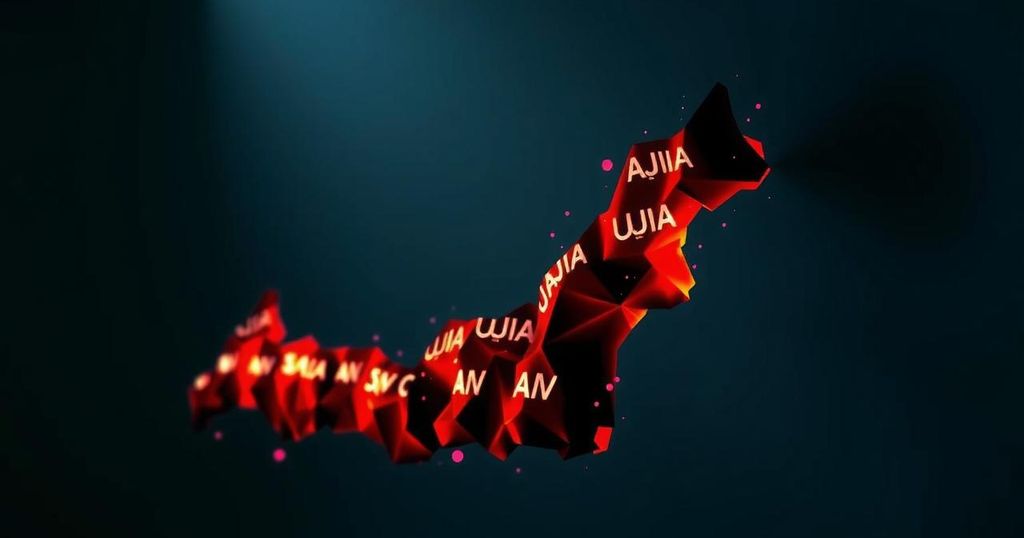Amnesty International has reported that armored vehicles made in the UAE, equipped with French defense systems, have been captured by the Sudanese army amidst the ongoing civil war. These vehicles, associated with the paramilitary RSF, likely violate a U.N. arms embargo. The UAE denies supplying arms, while the conflict continues to cause significant humanitarian crises, with over 20,000 dead and millions displaced.
Amnesty International has reported that armored vehicles manufactured in the United Arab Emirates (UAE) and outfitted with French defense systems have been found in the possession of the Sudanese army amidst the ongoing civil war in Sudan. These UAE-made armored personnel carriers have been observed particularly in the Darfur region, used by the paramilitary group Rapid Support Forces (RSF) in conflict against the Sudanese Armed Forces. The presence of these vehicles likely breaches a United Nations arms embargo that prohibits weapon transfers to Sudan. The civil war in Sudan erupted in April 2023, fueled by escalating tensions between the RSF and the Sudanese army, resulting in widespread human rights violations. According to the United Nations, the conflict has claimed the lives of over 20,000 individuals and displaced approximately 11.6 million. The UAE has denied allegations of supplying arms to the RSF, even as Amnesty International’s report establishes the presence of Nimr Ajban armored personnel carriers, confirmed through social media evidence. These vehicles, produced by the UAE’s Edge Group and equipped with the Galix reactive defense system from French firms Lacroix Defense and KNDS France, have been observed in active combat. Amnesty International’s Secretary General, Agnès Callamard, emphasized the importance of halting the supply of these systems to the UAE, stating, “Our research shows that weaponry designed and manufactured in France is in active use on the battlefield in Sudan.” In response, Lacroix acknowledged its provision of the Galix systems to the Emirati Armed Forces for countermeasures. The Emirati government has refuted the allegations of arms provision to the RSF, suggesting that these accusations stem from a coordinated disinformation campaign aimed at discrediting the UAE’s foreign policy. Furthermore, the United States has imposed sanctions on key RSF leader Algoney Hamdan Daglo Musa for engaging in weapon supply efforts during the conflict.
The Sudanese civil war, which began in April 2023, has stemmed from long-standing tensions between the Rapid Support Forces and the Sudanese army. The conflict has resulted in a significant humanitarian crisis with considerable loss of life and mass displacement. The ongoing violence has prompted international scrutiny regarding arms supplies and violations of United Nations embargoes. Amnesty International’s findings are part of broader concerns regarding the involvement of foreign entities in the conflict, particularly the supply of military equipment to combatant groups, which contributes to the destabilization of the region.
The allegations regarding the involvement of the UAE in supplying arms to the Rapid Support Forces in Sudan underscore the complexity of the ongoing conflict and the international implications of military support in civil wars. The findings presented by Amnesty International highlight the critical role of monitoring arms transfers and compliance with international embargoes to prevent exacerbating humanitarian crises. Both the UAE and France must address these serious accusations to maintain credibility and uphold international law.
Original Source: www.arkansasonline.com






